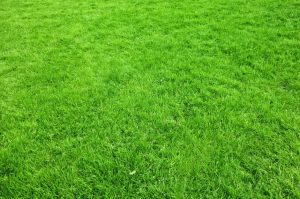If you are a gardener in Australia, you may have encountered ants in your garden. Ants can be beneficial to your garden by aerating the soil and controlling other pests, but they can also be harmful by disturbing the roots of plants, spreading diseases, and farming aphids. In this article, we will discuss how to get rid of ants in the garden Australia.
Why are ants bad for the garden?
Ants can be bad for the garden because they disturb the roots of your plants, spread diseases, and farm aphids. In a deeper focus, ants tunnelling through the soil can cause damage to the roots of plants, which can affect their growth and health.
Moreover, ants are known to spread diseases such as bacterial wilt to plants, which can cause their health to quickly deteriorate. Lastly, some species of ants farm aphids for their sweet honeydew, which can attract other pests to the garden and cause damage to plants.
Common types of ants in Australia
Some common types of species you may find in an Australian garden include:
- Black ants
- Brown ants
- Green ants
- Red ants
In our experience, the most commonly found type is the blank ant. These types don’t offer such a threat of an infestation, as they are simply foraging for food.
However, brown or green ants may offer more difficulties as they are known for their ability to build large nests either underground or in trees. Finally, we recommend exercising caution when dealing with red ants, as these can be aggressive and often have painful stingers.
How to get rid of ants in garden without killing your plants
Ants can be a nuisance in the garden, but it’s important to get rid of them without harming your plants. Here are some effective methods for removing ants from your garden without causing harm to your plants:
- Boiling water
- Cayenne pepper
- Cinnamon
- Chalk
- Boric acid and sugar
- Dishwashing liquid and oil
- Vinegar solution
- Nematodes
- Diatomaceous earth
- Insect-repelling plants
- Peppermint oil
- Peanut butter
We’ll take you through each of these methods in more detail below, including what it involves and how to execute it to get rid of ants in your garden.

1. Boiling water
The boiling water method is best used when you have identified a specific ant nest or colony that you want to get rid of. This method can be particularly effective for smaller ant nests, but may not be as effective for larger, more established colonies.
When boiling water is poured onto an ant nest, the heat is conducted through the soil and into the nest, killing the ants that come into contact with it. Boiling water is a natural and non-toxic way to get rid of ants without harming your plants, but it should be used with caution to avoid causing damage to the surrounding soil and plants.
It’s important to pour the boiling water directly onto the nest and not run it on plants or nearby soil.
2. Cayenne pepper
Cayenne pepper is best utilised when you first notice ants in your garden. For this method to be effective, it’s important that you act quickly, as ant colonies can grow quickly and cause damage to your plants.
Cayenne pepper is a natural and non-toxic way to deter ants from entering your garden. The spice contains capsaicin, which irritates ants and can cause them to avoid the area. To use cayenne pepper to get rid of ants, sprinkle it around your garden’s perimeter or directly onto ant trails. However, reapplying the cayenne pepper after rain or watering is essential to ensure that ants don’t return to your garden.
3. Cinnamon
Cinnamon is another natural and non-toxic way to get rid of ants in your garden. Similar to cayenne pepper, cinnamon is an irritant to ants and can cause them to avoid the area. Simply sprinkle the spice around your garden and ensure that you reapply it after watering or periods of rainfall.
We often like using cinnamon as it contains antifungal properties that can help further protect your plants from fungal diseases.
As with any natural method, it may take some time and patience to see results, but using cinnamon can be a safe and effective way to get rid of ants without harming your plants or the environment.
4. Chalk
Chalk, a popular and low-cost tool for deterring ants, is widely used by gardeners. It contains calcium carbonate, a compound that causes discomfort to ants and prompts them to avoid the area. To utilise chalk as an ant deterrent, you can draw a perimeter around their garden or mark ant trails directly. This strategy can effectively deter ants but may require repeated application after rainfall or watering.
One advantage of using chalk as an ant deterrent is its non-toxicity and safety for both humans and pets. Additionally, chalk can be easily washed away with water, making it a convenient and temporary solution for ant control.
However, it is important to note that this method may not be effective for larger or established ant colonies. Ultimately, using chalk can be a safe and effective way to prevent ants from infiltrating the garden without causing harm to the plants or the environment.
5. Boric acid and sugar
Combining sugar and boric acid is one of the more effective ways to eliminate them from your garden. This is because the sugar baits the ants, who then find and carry back the lethal mixture back to their colony. Once inside the nest, the harmful chemical spreads throughout and kills off the colony.
To make the bait, simply mix one part boric acid with three parts sugar, then sprinkle the mixture around areas of your garden where ants frequent the most. Keeping the mixture dry is essential, so it’s best to place it in a small container or use water-resistant adhesive tape.
However, it’s crucial to note that boric acid can be toxic to pets and humans if ingested in large amounts. Therefore, keeping the bait away from areas where pets or children may access it is crucial. It’s also necessary to use the bait sparingly and monitor its effectiveness.
6. Dishwashing liquid and oil
A solution of dishwashing liquid and oil can effectively eliminate ants in a garden because it disrupts the ants’ ability to move and breathe, ultimately leading to their demise. The dishwashing liquid contains a surfactant compound, which helps break down the protective waxy coating on the ants’ exoskeletons, causing them to dehydrate and die. Meanwhile, the oil in the solution acts as a suffocating agent, coating the ants’ bodies and interfering with their breathing, leading to their eventual death.
Correspondingly, the combination of the dishwashing liquid and oil creates a potent mixture that effectively eliminates ants from a garden.
To use this solution, mix one part dishwashing liquid with two parts oil and spray it directly on the ants and their trails. It is important to note that this solution can also harm beneficial insects, so it should be used with caution and only as a last resort when other ant control methods have failed.
7. Vinegar solution
A vinegar solution eliminates ants by disrupting their scent trails and confusing them. The strong smell of vinegar masks the ants’ pheromone trails, making it difficult for them to communicate with each other and find their way back to their nest. To use this solution:
- Mix equal vinegar and water in a spray bottle and spray it directly onto the ants and their trails.
- Repeat this process several times a day until the ants are gone.
- Avoid using vinegar near plants, as it can damage them.
Additionally, this method is beneficial as it is non-toxic and safe for children and pets.
8. Nematodes
Nematodes are microscopic, worm-like organisms that are natural predators of ants and other garden pests. There are many different types of nematodes, but those used for pest control are usually species that are harmless to humans, pets, and plants.
When nematodes are applied to the soil, they actively seek out ants and infect them with a bacteria that is fatal to the ants. As the nematodes multiply, they continue to seek out and infect more ants, gradually reducing the ant population in the garden.
Using nematodes to control ants should be mixed with water and applied to the soil using a watering can or sprayer. If you don’t have watering can handy, check out our product roundup for 2024 here.
It is important to follow the manufacturer’s instructions carefully, as the specific application rate and timing may vary depending on the nematode type and the ant infestation’s severity. This method is safe, natural, and effective for controlling ants in the garden.
9. Diatomaceous earth
Diatomaceous earth is a naturally occurring sedimentary rock made up of the fossilized remains of diatoms, a type of hard-shelled algae. This method is commonly used as a natural pesticide and insecticide due to its abrasive texture and ability to absorb moisture.
When diatomaceous earth comes into contact with insects, it dehydrates them and causes them to die. The sharp edges of the diatoms also cut into the insects’ exoskeletons, causing them to lose fluids and leading to their eventual death.
Diatomaceous earth is generally safe for use around humans and pets. Still, care should be taken not to inhale the fine dust particles, which can irritate the lungs. When using diatomaceous earth, following the manufacturer’s instructions carefully and wearing protective clothing, such as a dust mask and gloves, is important.
10. Insect-repelling plants
Believe it or not, there are several insect-repelling plants that can help to deter ants and other pests from the garden.
Some of the most effective plants for repelling ants include:
- Peppermint: The strong scent of peppermint is unpleasant to ants and can help to repel them from the garden.
- Lavender: The fragrant flowers of lavender contain natural insect-repelling compounds that can help to keep ants and other pests at bay.
- Lemon balm: The citrusy scent of lemon balm can help to deter ants and other insects from the garden.
- Catnip: The oil in catnip contains a compound that is highly effective at repelling ants and other pests.
- Rosemary: The strong scent of rosemary can help to mask the scent trails left by ants and other insects, making it difficult for them to find their way around the garden.
These plants can be grown in pots or planted directly in the garden to help repel ants and other pests. However, it is important to note that planting these plants alone may not completely eliminate an ant infestation and should be used in conjunction with other pest control methods for best results.
What to consider if using insecticides
If you are contemplating the usage of insecticides to regulate ants or other garden pests, there are a few crucial considerations that you must keep in mind:
- Safety: These chemicals can be hazardous to humans, pets, and beneficial insects when not used properly.
- Environment: It can also contaminate water sources and harm non-target species. Therefore, we recommend insecticides with low toxicity levels, using them with restraint and only when necessary to minimise environmental damage.
- Effectiveness: Not all insecticides are equally effective against all types of pests. Consider the specific pest you are trying to control and choose an effective insecticide against that pest.
- Resistance: Overuse of insecticides can lead to resistance in the pest population, making it more difficult to control in the future. Use insecticides as a last resort and rotate them with other control methods to prevent resistance.
By considering these factors and using insecticides responsibly, you can effectively manage garden pests while minimising the negative impact on the environment and other living organisms.
How to prevent an ant infestation in your garden
You can take several steps to prevent future ant infestations in your garden.
For example, keeping your garden clean, tidy and free of debris can help avoid ants from finding food or water sources. Additionally, sealing up entry points through cracks or gaps in walls, doors, or windows can prevent them from stumbling across your garden and causing an infestation.
Finally, removing any standing water can also ensure that ants will avoid building a next near your garden.
Getting rid of ants in the garden Australia can be a challenging task, but it is not impossible. Natural ant control methods like diatomaceous earth, borax and sugar solution, vinegar, and cinnamon can be used to get rid of ants.
FAQs
What is the cheapest option?
Any of these options are great as they are common household items.
What is the most effective option?
The most effective option for getting rid of ants in your garden depends on the severity of the infestation. Natural repellents and barriers like boric acid and sugar or dish soap and oil can be effective for minor infestations, while professional pest control may be necessary for more severe cases.
How long does vinegar keep ants away?
Vinegar can keep ants away for a few hours to a few days depending on the concentration and application. However, it may need to be reapplied after rain or watering.
What is the best ant killer for gardens?
The best ant killer for gardens may vary based on the type of ants present and the severity of the infestation. Natural options like boric acid and sugar or dish soap and oil can be effective for minor infestations, while professional pest control may be necessary for more severe cases.






